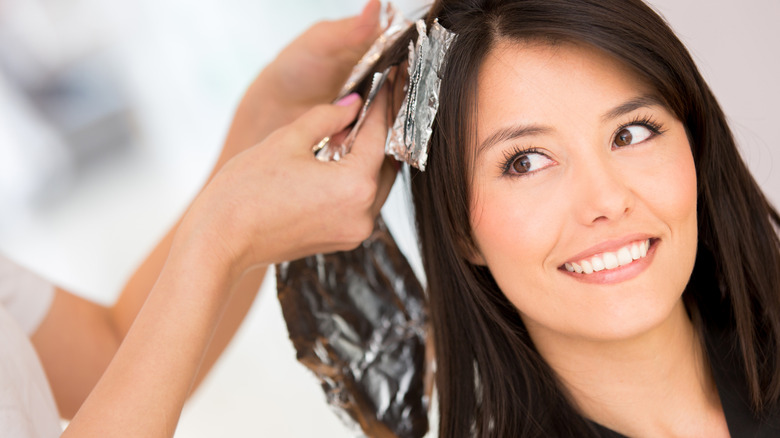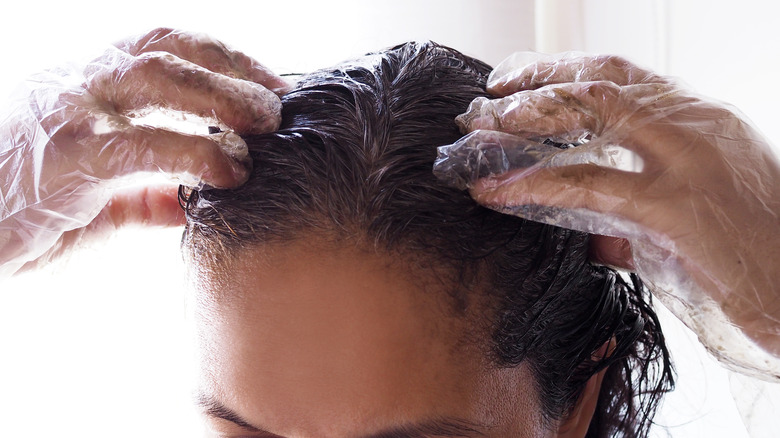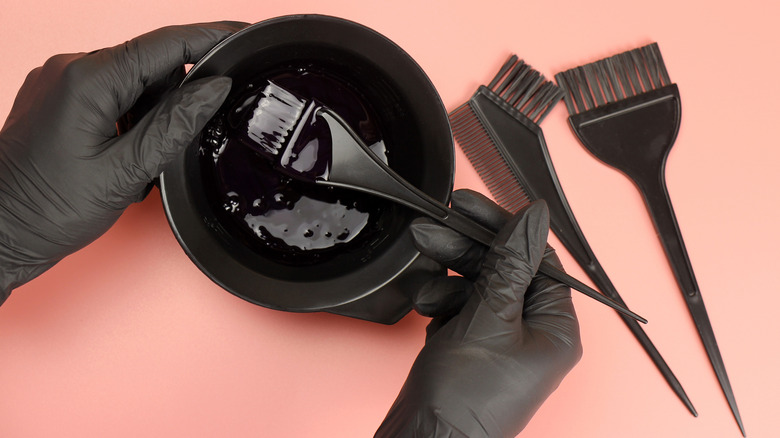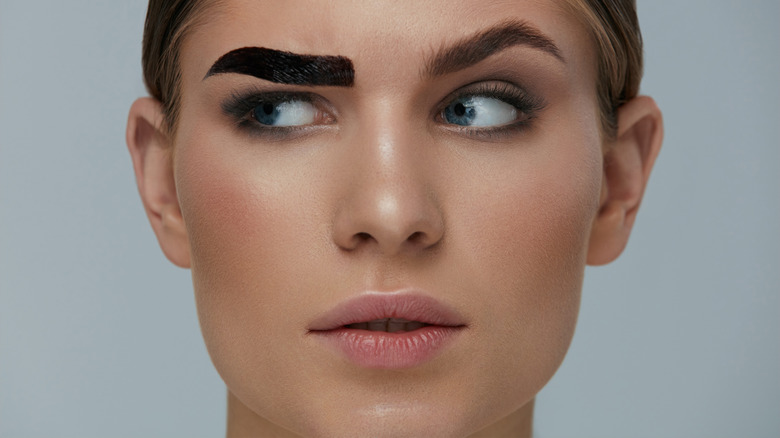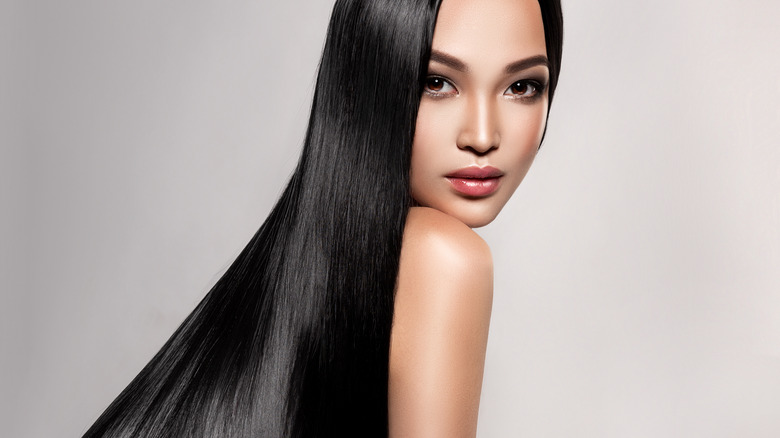Read This Before Dyeing Your Hair Black
Whether they're dyeing their hair for a new role, red carpet, or simply for social media, it seems like certain celebrities are constantly going through color transformations. In 2021, stars such as Demi Lovato rocked the blue-hair aesthetic, while 2020's quarantine months inspired quite a few A-list hair transformations, from rainbows to chocolatey brunette locks and back again.
As stylist Michelle Schindler told Women's Health, "rich brunette" is one of 2022's go-to hair colors, with celebs like Addison Rae and Lily James opting for darker shades. Ultimately, dyeing your hair dark brown or even fully black will actually make it look healthier. As Hello Giggles explains, "When you're going dark, you're adding something and when you go light, you're stripping away."
Darker hair can also help hide pre-existing damage. "Because the hairs are thicker naturally, dark hair is better at camouflaging damage than light hair," colorist Adrian Wallace noted in an interview with Women's Health, adding that "it weighs down flyaways and split ends [too]." Despite the benefits, it's important to understand the aftercare and upkeep required when dyeing your hair black.
Consider your hair texture and past damage
Unlike dyeing your hair a lighter shade — a process that is often damaging, per Healthline — the majority of textures easily adapt to darker dyes. Stylist Sarah Klein confirmed with Bustle: "Typically most hair types can handle it." However, "It's always good to check the porosity and elasticity of the hair and do treatments before any color service."
If your hair is damaged from previous salon visits or at-home experimentation, it might be best to hold off on coloring it again until those fried strands heal. Alternatively, investing in a protein treatment before making a drastic color change could help restore hydration and cut down on breakage at the same time.
Luckily, according to hair colorist Kathy Debriski, it will take less time to darken high-porosity hair. She noted, "Curly hair tends to have a rougher cuticle, which makes it porous and it will absorb the color quicker." Likewise, if you're dyeing your hair at home, make sure to factor texture into your timing.
It's never as simple as just using a single color
Salon professionals will add the necessary dimensions to your hair, since it's important to note that naturally-black hair is never just one shade, it's actually a subtle mixture of several different colors. Bustle explains that a trained colorist will be able to help you achieve the proper base colors before going in with the final, full black. For instance, StyleCaster recommends violet undertones for brassy hair, and gold to cover gray.
Further, before cozying up in the salon chair, it's also important to work out which shade of black will work best with your skin tone. Pharmacy dyes that advertise a cooler base are often better DIY options. They will always look darker than pigments with warmer undertones, per Cosmopolitan. Keep in mind, though, that you may not achieve your ideal results from the comfort of your bathroom.
StyleCaster warns that a box hair dye developer is only able to darken your natural color by two shades at most. So, if you're looking to turn your blonde or light-brown hair completely black, the salon is always your best option.
You'll have to refresh your brows and make-up
It's important to match your eyebrows to your newly-black hair — unless you're going for the popular bleached brow trend, of course. When tinting your eyebrows, always take the necessary precautions. Hair dye can be extremely harmful if it gets in your eyes. As always, you're likely to get better (and safer!) results if you let a professional handle the chemicals.
After dyeing your hair, you also might need to change up your makeup routine to better match the new shade. According to Allure, black hair is often complimented by warmer-toned colors. Invest in a good bronzer and autumnal cream shadows. Or, now that '90s grunge is officially back, per Byrdie, pre-2000s baby blue eyeshadow and cool-toned liners can also make your black hair look especially chic.
If you're really looking to go the extra mile, it's also worth considering wardrobe pieces that better match the new shade. For instance, Who What Wear points out that bright red is especially powerful when paired with dark hair.
Ensure you don't neglect the upkeep after coloring
Perhaps the most important thing to consider before dyeing your hair black is the long-term commitment it requires. Certain shampoos and heat styling, for instance, can quickly strip your new color. After your trip to the stylist, invest in some color-safe shampoos, i.e. products that will help you maintain the look for longer.
As StyleCaster points out, you'll also need to maintain your roots, especially if you dyed your hair black from a natural light blonde or brown. And, if for whatever reason you regret your dark dye decision, be aware that it's super difficult to backtrack. According to professional colorist Laura Estroff, "When you lift your hair from being dyed dark, you have an extra layer of hair color that you have to break through."
She continued, "It will get lighter [eventually], but it will likely be darker than your target," (via Hello Giggles). In other words, if you're disappointed with the color, you'll have to wait it out, so be prepared before taking the plunge.
